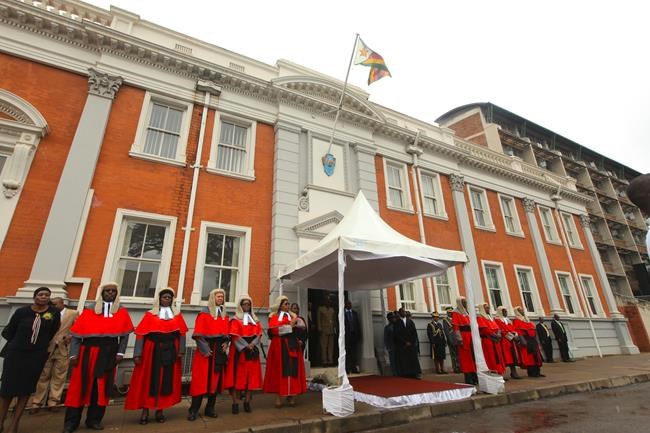Elevate your local knowledge
Sign up for the iNFOnews newsletter today!

HARARE, Zimbabwe – Zimbabwean judges recently filed into court for the official beginning of their 2017 duties, wearing long red robes and horsehair wigs, a throwback to an era of British colonial rule,.
President Robert Mugabe has sparred with Britain for decades and denounces the West for what he calls a neo-colonial attitude, but he has a soft spot for a traditional etiquette and a dress code in the courts that even Britain has partly dropped.
Judges in Britain now must wear wigs only when hearing criminal matters as part of dress code reforms in 2008, ending a centuries-old tradition. Some Commonwealth countries such as Kenya and South Africa have also moved away from wearing wigs in the courts. In 2003, Zimbabwe pulled out of the Commonwealth, a group made up mostly of former British colonies.
In Zimbabwe, there have been no such curbs on the old fashion.
“It’s an archaic and unnecessary practice that has even been abandoned by those who exported it to us as a nation. It does not improve jurisprudence or enhance the thinking capacity of judges,” said Arnold Tsunga, a Zimbabwean lawyer and International Commission of Jurists regional program director for Africa.
Scrapping the traditional dress code could save money in financially troubled Zimbabwe, Tsunga said.
In 2013, Zimbabwean judges appealed for new regalia to replace worn-out, secondhand robes and wigs given to them by retired judges.
“Mugabe gives an impression that he hates the British; he is really fond of their culture and traditions,” said Alex Magaisa, a law lecturer at Britain’s University of Kent.
Want to share your thoughts, add context, or connect with others in your community?
You must be logged in to post a comment.